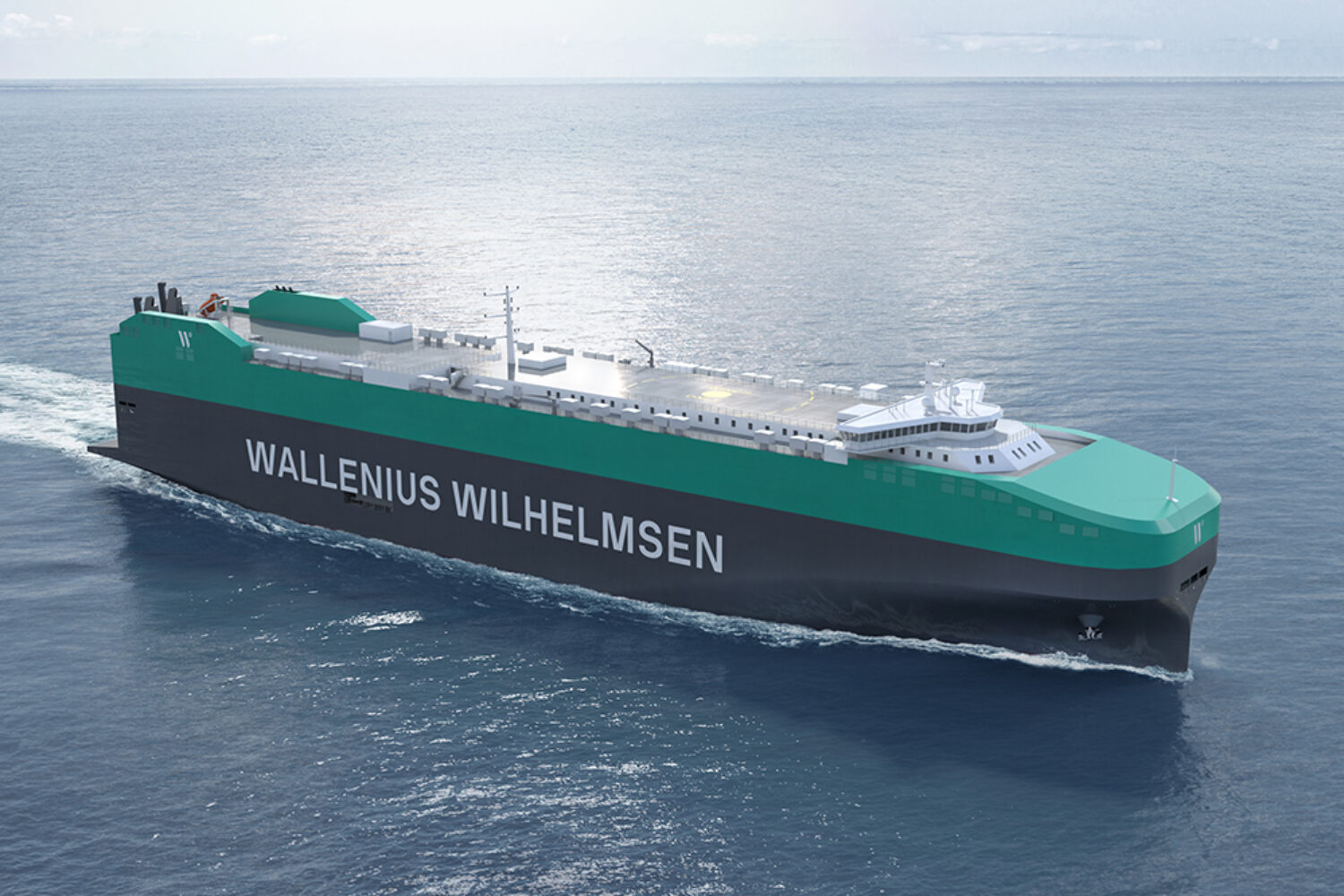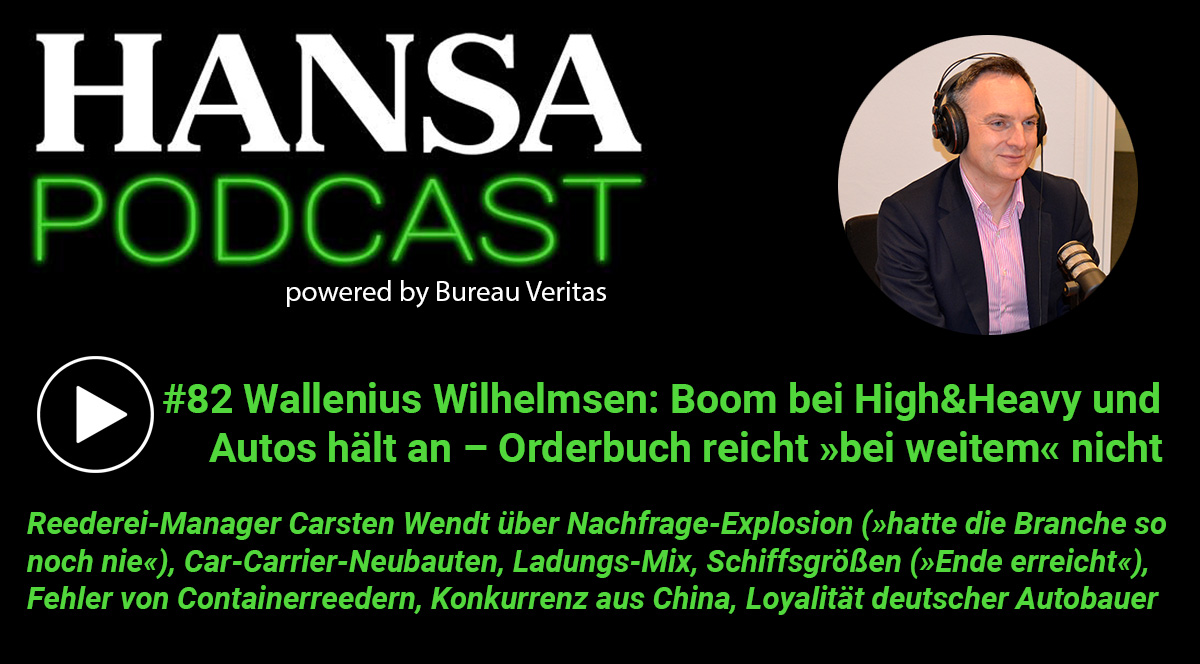The shipping company Wallenius Wilhelmsen is expanding its order book for newbuildings and is taking the option for four car carriers (PCTC).
WalleniusWilhelmsen has announced an order for additional vessels of the so-called “Shaper” class with a capacity of 9,300 CEU[ds_preview].
The dual-fuel vessels will be able to use alternative fuel sources, such as methanol, upon delivery. They will also be prepared for the use of ammonia and can be converted as soon as ammonia is safely available, Wallenius Wilhelmsen announced. This will also enable them to play “a key role” in the introduction of the planned net-zero emissions service by 2027.
Eight new shapers for Wallenius Wilhelmsen
Modernizing the fleet is high on Wallenius Wilhelmsen’s agenda. Only recently, Carsten Wendt, Head of High & Heavy / Breakbulk, emphasized in the HANSA podcast that the high demand and environmental regulation make further newbuilds necessary. The current order book is “nowhere near” sufficient, he said.
Among other things, Wendt talks about the market situation for car carriers, new competition from China, the loyalty of German car manufacturers, the trends in “high & heavy” and how breakbulk customers are “suffering” as a result, ship sizes (“end of growth reached”) and mistakes made by container shipping companies.
“Together with our customers, we are committed to further shaping our industry and accelerating the path towards net zero emissions. These new vessels are an important part of that journey,” said Xavier Leroi, EVP & COO Shipping Services.
This latest commitment brings the total number of Shaper-class vessels on order at the Jinling shipyard (Jiangsu) to eight units. Wallenius Wilhelmsen also reserves further options.
The first of the Shaper-class vessels already ordered are expected to be delivered in the second half of 2026. The four additional ships are scheduled to enter service between May and November 2027.














